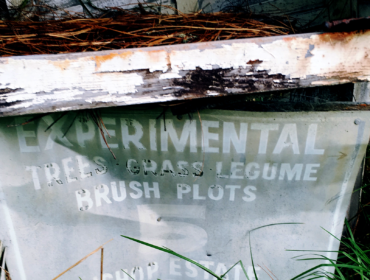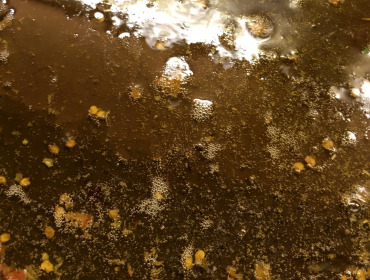With his article in the “Triathlete Europe” Mario Fraioli gave me a good reason to dive a little bit more into the topic of chronobiology. Mario Fraioli’s conclusions in his text are that the time of the day has got an influence on performance and strength. He simply observed that his running performance was conspicuously better in the afternoon and early evenings compared to the early mornings. His observations are very much in line with the applied and experimental work available. To collect substantial scientific evidence about how our body clock influences performance is extremely demanding from a methodical and practical viewpoint.
This may astonish you because I assume many of you experience fluctuations of performance during a daytime. But if it comes to science you have to measure, you have to know what to measure at what time and how often, and on top of this, data has to be reproducible. I want to briefly give you an idea of the complexity of the problem that science is facing, if it sticks to its own rules of gaining reproducible data by the means of experiments.
To start the process of proving the influence of chronobiology on performance one has to define the term “chronobiology” and “performance” first. The definition of chronobiology is relatively easy.
Rhythmicity or fluctuations of body parameters that persist, if you deduct all the exogenous influences, are considered to be of chronobiological origin – easy stated, difficult to prove. Performance is a far more complex term. It entails aspects of fine motor skills, gross motor performance, sensorimotor and psycho motor processes as well as perceptual and cognitive functions, strength and flexibility. One does not need to know much about science to realize how difficult it is to select variables path-breaking to the problem.
And how do we get the environment out of the equation, the context that is part and parcel of every individual, organ, cell, cell element etc.. Doesn’t this seem illusive to you? To me it does. If you read studies that have been performed to trace circadian rhythms in sports performance, the results are disappointing and inconclusive. It looks like much fuzz about nothing. The sparse data (from in my opinion weak studies) underscore your experience, and can be summarized and broken down into the few lines quoted below:
“Analysis of different rhythms in performance would suggest that the performance of skill-based sports and those requiring complex competitive strategies, decisions and the delivery, and recall of coaching instructions is best completed in the morning. Sports that require substantial physical efforts should be completed later in the day.”
I have got a notion, that we have too little basic knowledge about chronobiology to venture out into sports performance. The thought concepts applied to the study designs seem to me to meander in barren land. There has to be more basic work to be done with new ideas and hypotheses. Just an example until today we don’t even have a scientifically based answer to the question whether jet lag influences performance.
What we do know …
Time is a mysterious phenomenon, we can experience that every day. There are the little mysteries around time such as knowing the time without looking at the watch or waking up on time without an alarm, and then the different feelings for time. It can drag along, and it can pass by so incredibly fast, even though the hour is still the hour, the second is still the second.
Time is an enigma for physicists and even more for biologists. The living is hard to observe, it evades scrutiny, not so distinct from Schrödinger’s cat.
Could it eventually be that our feeling for time, that time as such is the integral link between us and the outside world, and that efforts to get the context out of the way are simply futile endeavors? Be it as it may, the body has definitely got an integrated clock. The body follows an circadian rhythm of approximately 24 hours. Day and night, which means the light has assumably got the strongest zeitgeber function, so is the sleep-wake cycle the most obvious rhythm we live after. But there are many others that determine our being in the world: gene expressions and protein synthesis follow a time pattern, each cell has got a clock, organs pulsate with different rhythms and peak at different times. Cortisol and growth hormones express secretion patterns over time, and so on and so on. Body temperature peaks in the afternoon and early evening.
We know that during the day the activated stress system controls the metabolism and induces the release of sufficient energy. This activation is initiated in the very early morning. This may be the reason why we observe more heart attacks at this time of the day. Liver mounts activity around early noon. In the evening a metabolic change takes place. It’s the time for building, therefore we observe the increased secretion of growth hormones and prolactin…
And how do all these clocks succeed to cooperate?
We have a – one may call it – super clock in our brain, that does the coordinative work. It is a complex web of positive and negative feedback loop, intertwined circuits that are connected to all our body, and body systems. At this very end I may quote Sebastian Seung, and you may feel motivated to listen to his talk… he names us a connectome. He may be right, at least if we look at the clock system we carry with us every day.
If I had to answer the question whether (sports) performance follows a circadian rhythm, I am bold enough to say yes, even if science does not give a definite answer yet. Can you give me your opinion, your experience about this topic and your thoughts why or whether you think that feel is inferior to measure.






hey and thank you for the information – I have absolutely picked up something new from your blog. I nonetheless ran into some on site problems using this website. I was wondering if your website hosting is ok? Not that I’m complaining, however sluggish loading instances times may likely influence your placement in yahoo and may damage your high-quality content on this site. Anyway I am putting your Rss feed to my personal email and will look out for more of your helpful posts..
A Well written article, Thank you.
We know so much of this intuitvcely, yet everything nowadays needs to be proven by science. If it cant be, it just does not exist.
In a school in which I work, the grades 1 and 2 do gym first thng. then literacy and numeracy after breadk! I feel sure this is the wrong way round. No doubt a brief exercise spat first thing would shake out the cobwebs, but I feel the intellect should be challenged first and the body later when it becomes tired of being still.